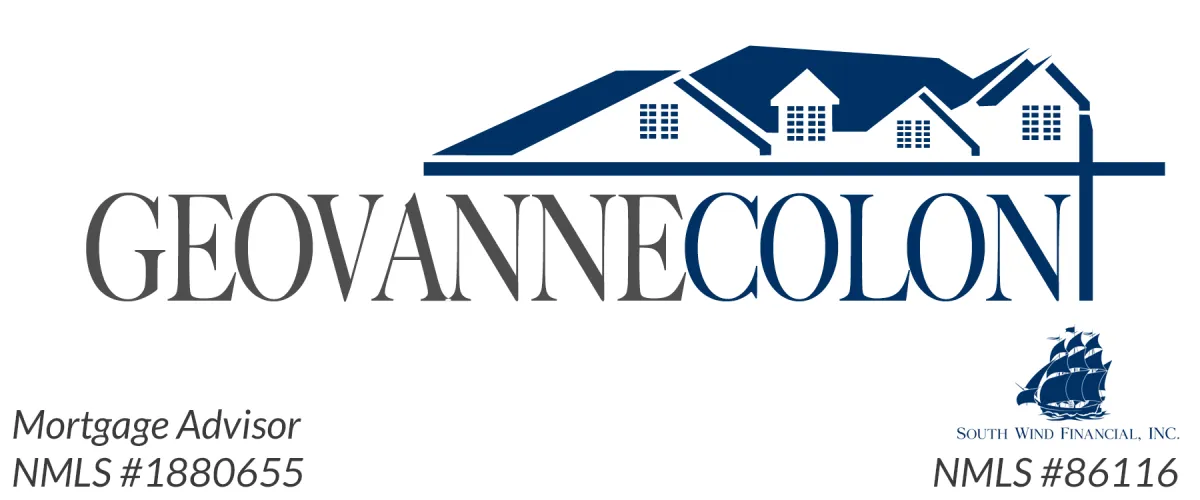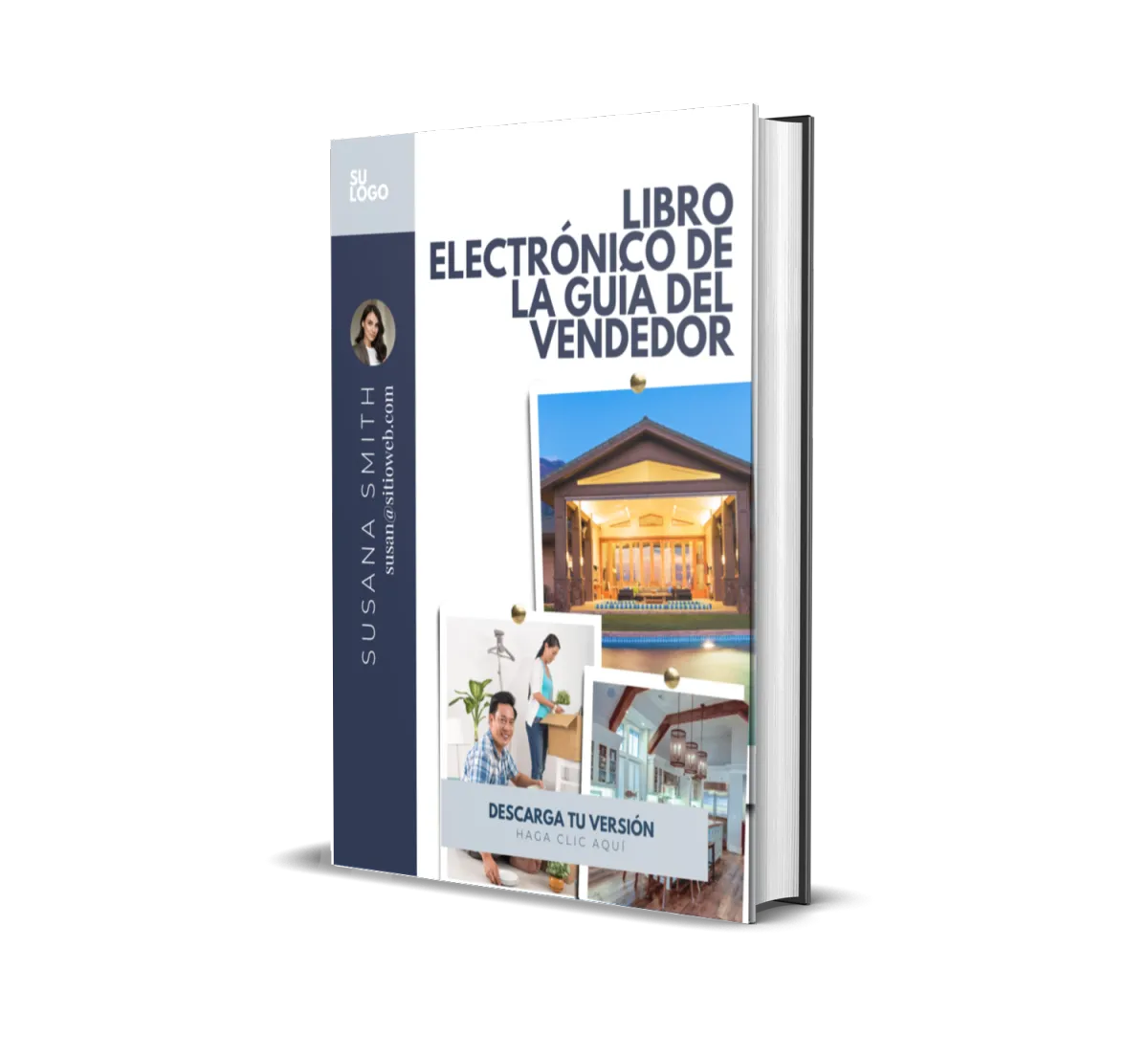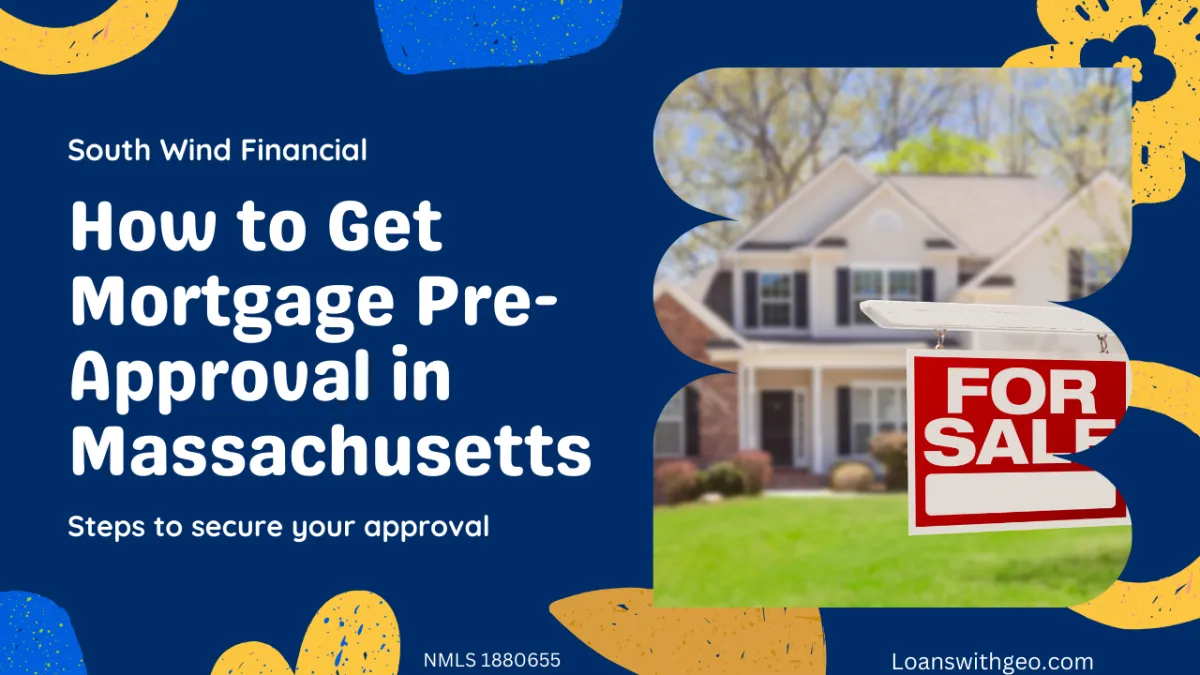617-821-1757

Looking For FHA Loans?
Apply today for the mortgage
that’s right for you.
Unlock Low Rates with Ease
Discover how Geovanne Colon simplifies the mortgage qualification process for you.
Apply today for the mortgage
that’s right for you.
Unlock Low Rates with Ease
Discover how Geovanne Colon simplifies the mortgage qualification process for you.
Low Rate.
Zero Hassles.
Get a free quote
Low Rate.
Zero Hassles.
Get a free quote
Feel Overwhelmed by Mortgage Choices? I Understand.

Feeling Lost in a Sea of Mortgage Options? Finding the right mortgage can be a daunting task. With an overwhelming array of rates, terms, and lenders, it's easy to feel lost and uncertain. Are you worried about high interest rates, hidden fees, or choosing a mortgage that doesn't fit your long-term goals?
Why Choose Us?
Ready to Start?
Your perfect home won't wait forever, and neither should you. Begin your journey today with a loan officer that puts you first. By choosing us, you're not just getting a loan – you're gaining a lifelong partner in all your mortgage endeavors.
Start your no-obligation consultation now and join the myriad of satisfied homeowners who have unlocked the doors to their future with ease and confidence. Dive into our world of simplified lending, and let's turn your homeownership dreams into reality.
Welcome Home!
Loan Programs We Help With
Seamless Solutions, Limitless Possibilities
Residential Mortgage Programs
1. FHA Loans
Federal Housing Administration (FHA) Loans
• Suitable for first-time homebuyers
• Low down payment options (as low as 3.5%)
• Requires mortgage insurance
• Lenient credit scores accepted
• 203K Renovation Loans Available
2. Conventional Loans
Conventional Mortgage Loans
• Preferred by borrowers with stronger credit
• Down payments as low as 3%
• Available in fixed or adjustable rates
• No government insurance premiums
• HomeStyle Renovation Loan Available
3. USDA Loans
US Department of Agriculture (USDA) Loans
• Ideal for eligible rural and suburban homebuyers
• Zero down payment
• Low insurance costs
• Income and geographic restrictions apply
4. VA Loans
Veterans Affairs (VA) Mortgage Loans
• Exclusively for veterans, active-duty service members, and eligible spouses
• No down payment required
• No mortgage insurance needed
• Competitive interest rates
A. ITIN - No Social Security Loans
• For borrowers with an Individual Tax Identification Number
• Lacks Social Security number
B. 1099 Loans
• Designed for independent contractors or self-employed individuals
• Based on the 1099 tax form income
C. VOE Only
• Verification of employment as the primary source of income validation
D. Asset Depletion
• Utilizes borrower's liquid assets for qualification purposes
E. Bank Statement Loans
• Income based on bank statements, suitable for self-employed borrowers
F. DSCR - Investor No Income Verification
• For real estate investors, using property cash flow as a qualification metric
Non-Qualified Mortgage (Non-QM) Loans
Loan Programs We Help With
Seamless Solutions, Limitless Possibilities
Residential Mortgage Programs
1. FHA Loans
Federal Housing Administration (FHA) Loans
• Suitable for first-time homebuyers
• Low down payment options (as low as 3.5%)
• Requires mortgage insurance
• Lenient credit scores accepted
2. Conventional Loans
Conventional Mortgage Loans
• Preferred by borrowers with stronger credit
• Down payments as low as 3%
• Available in fixed or adjustable rates
• No government insurance premiums
3. USDA Loans
US Department of Agriculture (USDA) Loans
• Ideal for eligible rural and suburban homebuyers
• Zero down payment
• Low insurance costs
• Income and geographic restrictions apply
4. VA Loans
Veterans Affairs (VA) Loans
• Exclusively for veterans, active-duty service members, and eligible spouses
• No down payment required
• No mortgage insurance needed
• Competitive interest rates
Non-Qualified Mortgage (Non-QM) Loans
A. ITIN - No Social Security Loans
• For borrowers with an Individual Tax Identification Number
• Lacks Social Security number
B. 1099 Loans
• Designed for independent contractors or self-employed individuals
• Based on the 1099 tax form income
C. VOE Only
• Verification of employment as the primary source of income validation
D. Asset Depletion
• Utilizes borrower's liquid assets for qualification purposes
E. Bank Statement Loans
• Income based on bank statements, suitable for self-employed borrowers
F. DSCR - Investor No Income Verification
• For real estate investors, using property cash flow as a qualification metric
More Loan Programs
Foreign National Loans
• Tailored for non-U.S. citizens looking to buy investment or vacation properties in the U.S.
• May require larger down payments and proof of foreign income.
Jumbo Loans
• Exceed the loan limits set by the FHFA for conventional mortgages.
• Requires non-traditional underwriting to accommodate the larger loan amount.
Real Estate Investor Loans
• Customized loans for experienced real estate investors.
• Can include options for multiple properties under a single loan (blanket loans).
Non-Warrantable Condo Loans
• For condos that do not meet specific requirements by Fannie Mae or Freddie Mac.
• Necessary for financing condos in buildings with more owner-occupied spaces or litigation issues.
Credit Event Loans
• Available to borrowers with significant derogatory credit events, such as bankruptcy or foreclosure.
• Typically requires a higher down payment or additional reserves.
Hard Money/Private Lending
•For immediate or short-term financing needs
• Higher-cost, short-term loans
• Asset-based lending criteria
• Terms typically around 12 months
Fix and Flips
• Loans crafted for renovating and flipping properties
Commercial Loans
•Tailored for businesses to purchase or refinance commercial property
• Offering solutions for office buildings, retail spaces, and industrial properties
• Custom terms to align with business strategies
New Construction
• Financing for ground-up construction projects
Small Business Administration (SBA) Loans
• Federally backed to help start or grow a business
• Lower down payments
• Longer repayment terms
• Focused on small businesses
Bridge Loans
• Short-term loans to bridge the gap during transitional periods
Down Payment Assistance Programs
• Provides prospective homebuyers with loans or grants that they can use toward the down payment for a house.
• Most down payment assistance programs are designed for first-time homebuyers and offered by various institutions, such as government, non-profits, or lenders.
More Loan Programs
Foreign National Loans
• Tailored for non-U.S. citizens looking to buy investment or vacation properties in the U.S.
• May require larger down payments and proof of foreign income.
Jumbo Loans
• Exceed the loan limits set by the FHFA for conventional mortgages.
• Requires non-traditional underwriting to accommodate the larger loan amount.
Real Estate Investor Loans
• Customized loans for experienced real estate investors.
• Can include options for multiple properties under a single loan (blanket loans).
Non-Warrantable Condo Loans
• For condos that do not meet specific requirements by Fannie Mae or Freddie Mac.
• Necessary for financing condos in buildings with more owner-occupied spaces or litigation issues.
Credit Event Loans
• Available to borrowers with significant derogatory credit events, such as bankruptcy or foreclosure.
• Typically requires a higher down payment or additional reserves.
Hard Money/Private Lending
•For immediate or short-term financing needs
• Higher-cost, short-term loans
• Asset-based lending criteria
• Terms typically around 12 months
Fix and Flips
• Loans crafted for renovating and flipping properties
Commercial Loans
•Tailored for businesses to purchase or refinance commercial property
• Offering solutions for office buildings, retail spaces, and industrial properties
• Custom terms to align with business strategies
New Construction
• Financing for ground-up construction projects
Small Business Administration (SBA) Loans
• Federally backed to help start or grow a business
• Lower down payments
• Longer repayment terms
• Focused on small businesses
Bridge Loans
• Short-term loans to bridge the gap during transitional periods
Down Payment Assistance Programs
• Provides prospective homebuyers with loans or grants that they can use toward the down payment for a house.
• Most down payment assistance programs are designed for first-time homebuyers and offered by various institutions, such as government, non-profits, or lenders.
Who We Help?
Seamless Solutions, Limitless Possibilities
First Time Home Buyers
We know how overwhelming the process of buying a home is, especially if it is the first time that you're doing it. We will work closely with you to explain the process, to protect you from making mistakes that could cost you later, and to ensure that your mortgage gets approved and you get the home that you are so excited to be buying!
Move Up and Second Home Buyers
Buying a new home when you currently own one has it's own unique set of concerns. We can answer all of your questions about how to qualify and purchase a home when you already own one whether you're buying a new primary residence or a second vacation home.
Refinancing Home Owners
If you already own your home but you are looking to refinance to either save money with a lower interest rate or possibly take some cash out for any reason, we can help you with that. We also can show you how to make sure you are structuring your new financing to get the best deal possible.
Investment Buyers
If you're buying real estate for investment purposes, we can help you secure low rate financing to maximize your ROI.
Seniors Seeking Reverse Mortgages
If you are 62 years or older and are looking for options to stay in your home without a mortgage payment or to access your home's equity while still living there, I can answer your questions about reverse mortgages so you can decide if they are right for you.
What My Clients Say
Ready to Find Your Perfect Mortgage?
Are You A First Time Home Buyer?
Download Our Free Home Buyer's Guide

Other Resources You'll Find Helpful

Buyer's Guide for Real Estate Agent
(English)

Buyer's Guide for Real Estate Agent
(Spanish)

Seller's Guide for Real Estate Agent
(English)

Seller's Guide for Real Estate Agent
(Spanish)
Calculate Your Mortgage Payment
Our Blogs

How to Prepare for a Mortgage Pre-Approval in Massachusetts
How to Prepare for a Mortgage Pre-Approval in Massachusetts
Understanding Mortgage Pre-Approval
If you’re planning to buy a home in Massachusetts, securing a mortgage pre-approval is a crucial first step. A pre-approval shows sellers that you are a serious buyer and provides a clear understanding of how much home you can afford. This process involves a lender reviewing your financial background, including credit score, income, and debt-to-income ratio, to determine your loan eligibility.
Why Mortgage Pre-Approval Matters
Stronger Offers: Sellers take pre-approved buyers more seriously.
Better Budgeting: Know your price range before house hunting.
Faster Closing: Speeds up the final loan approval process.
Interest Rate Lock: Some lenders allow you to lock in rates at pre-approval.
Avoid Surprises: Identifies potential financial issues early, allowing time for corrections.
Key Steps to Get Pre-Approved
1. Check Your Credit Score
Lenders typically require a minimum credit score of 620 for conventional loans, while FHA loans allow scores as low as 580. The higher your score, the better your interest rate.
Tip: Obtain a free credit report from Experian, Equifax, or TransUnion and dispute any errors before applying.
2. Calculate Your Debt-to-Income (DTI) Ratio
Lenders prefer a DTI ratio below 43%, meaning your total monthly debt payments should not exceed 43% of your gross monthly income.
Formula: DTI Ratio = (Total Monthly Debt Payments / Gross Monthly Income) x 100
If your DTI is too high, consider paying down debts or increasing your income before applying for pre-approval.
3. Gather Required Documents
Having these documents ready speeds up your pre-approval process:
Proof of Income: W-2s, pay stubs, or tax returns.
Bank Statements: To verify assets and reserves.
Employment Verification: Lenders may contact your employer.
ID and Social Security Number: For identity verification.
Rental or Mortgage History: Past payments to show financial responsibility.
4. Compare Lenders and Get Pre-Approved
Not all mortgage lenders offer the same rates or terms. Shop around with different lenders to find the best deal. Many lenders provide online applications for convenience.
Questions to Ask a Lender:
What are your current interest rates?
Are there any prepayment penalties?
What are the total loan fees and closing costs?
Do you offer first-time homebuyer programs?
Can I lock in my rate during pre-approval?
5. Understand Your Loan Options
Depending on your situation, you may qualify for:
Conventional Loans: Ideal for borrowers with strong credit.
FHA Loans: Low down payment options for lower credit scores.
VA Loans: Available for veterans and active military personnel.
USDA Loans: Designed for rural and suburban homebuyers.
Jumbo Loans: For homes exceeding conventional loan limits.
Common Mistakes to Avoid During Pre-Approval
Making Large Purchases: Avoid buying a car or opening new credit lines before closing.
Changing Jobs: Lenders prefer job stability during the process.
Not Checking Your Credit Report: Errors can delay or impact loan approval.
Skipping Loan Comparisons: Not all lenders offer the same terms—always compare rates and fees.
The Massachusetts Housing Market Outlook for 2025
The Massachusetts housing market remains competitive, with continued demand in cities like Boston, Cambridge, Worcester, and Springfield. Buyers should expect:
Slight interest rate fluctuations: Rates are predicted to stabilize but may remain higher than pre-pandemic levels.
Increased housing inventory: More properties expected to enter the market.
Price stabilization: Home values may see slower growth, giving buyers better opportunities.
What Happens After Pre-Approval?
Once you receive a pre-approval letter, it’s valid for 60-90 days. Use this time to find a home and make an offer. Avoid making big purchases or taking on new debt, as this could affect your loan eligibility. If you don’t purchase within the pre-approval window, you may need to renew your pre-approval.
Frequently Asked Questions (FAQs)
How long does mortgage pre-approval take?
Most lenders process pre-approvals within 24-72 hours, but it can take longer if additional documentation is required.
Does pre-approval guarantee a mortgage loan?
No. Pre-approval is conditional based on your financial situation remaining stable until closing.
Can I get pre-approved if I’m self-employed?
Yes, but you may need to provide extra documentation, such as two years of tax returns, bank statements, and profit/loss statements.
Final Thoughts
A mortgage pre-approval is the first step toward homeownership in Massachusetts. By preparing your finances, understanding loan options, and working with the right lender, you can confidently enter the housing market.
Need Expert Mortgage Assistance?
At South Wind Financial, we specialize in helping Massachusetts homebuyers navigate the mortgage process with ease. Contact us today for a consultation and get started on your homeownership journey!
📞 Call 617-821-1757 | 📧 [email protected]

How to Prepare for a Mortgage Pre-Approval in Massachusetts
How to Prepare for a Mortgage Pre-Approval in Massachusetts
Understanding Mortgage Pre-Approval
If you’re planning to buy a home in Massachusetts, securing a mortgage pre-approval is a crucial first step. A pre-approval shows sellers that you are a serious buyer and provides a clear understanding of how much home you can afford. This process involves a lender reviewing your financial background, including credit score, income, and debt-to-income ratio, to determine your loan eligibility.
Why Mortgage Pre-Approval Matters
Stronger Offers: Sellers take pre-approved buyers more seriously.
Better Budgeting: Know your price range before house hunting.
Faster Closing: Speeds up the final loan approval process.
Interest Rate Lock: Some lenders allow you to lock in rates at pre-approval.
Avoid Surprises: Identifies potential financial issues early, allowing time for corrections.
Key Steps to Get Pre-Approved
1. Check Your Credit Score
Lenders typically require a minimum credit score of 620 for conventional loans, while FHA loans allow scores as low as 580. The higher your score, the better your interest rate.
Tip: Obtain a free credit report from Experian, Equifax, or TransUnion and dispute any errors before applying.
2. Calculate Your Debt-to-Income (DTI) Ratio
Lenders prefer a DTI ratio below 43%, meaning your total monthly debt payments should not exceed 43% of your gross monthly income.
Formula: DTI Ratio = (Total Monthly Debt Payments / Gross Monthly Income) x 100
If your DTI is too high, consider paying down debts or increasing your income before applying for pre-approval.
3. Gather Required Documents
Having these documents ready speeds up your pre-approval process:
Proof of Income: W-2s, pay stubs, or tax returns.
Bank Statements: To verify assets and reserves.
Employment Verification: Lenders may contact your employer.
ID and Social Security Number: For identity verification.
Rental or Mortgage History: Past payments to show financial responsibility.
4. Compare Lenders and Get Pre-Approved
Not all mortgage lenders offer the same rates or terms. Shop around with different lenders to find the best deal. Many lenders provide online applications for convenience.
Questions to Ask a Lender:
What are your current interest rates?
Are there any prepayment penalties?
What are the total loan fees and closing costs?
Do you offer first-time homebuyer programs?
Can I lock in my rate during pre-approval?
5. Understand Your Loan Options
Depending on your situation, you may qualify for:
Conventional Loans: Ideal for borrowers with strong credit.
FHA Loans: Low down payment options for lower credit scores.
VA Loans: Available for veterans and active military personnel.
USDA Loans: Designed for rural and suburban homebuyers.
Jumbo Loans: For homes exceeding conventional loan limits.
Common Mistakes to Avoid During Pre-Approval
Making Large Purchases: Avoid buying a car or opening new credit lines before closing.
Changing Jobs: Lenders prefer job stability during the process.
Not Checking Your Credit Report: Errors can delay or impact loan approval.
Skipping Loan Comparisons: Not all lenders offer the same terms—always compare rates and fees.
The Massachusetts Housing Market Outlook for 2025
The Massachusetts housing market remains competitive, with continued demand in cities like Boston, Cambridge, Worcester, and Springfield. Buyers should expect:
Slight interest rate fluctuations: Rates are predicted to stabilize but may remain higher than pre-pandemic levels.
Increased housing inventory: More properties expected to enter the market.
Price stabilization: Home values may see slower growth, giving buyers better opportunities.
What Happens After Pre-Approval?
Once you receive a pre-approval letter, it’s valid for 60-90 days. Use this time to find a home and make an offer. Avoid making big purchases or taking on new debt, as this could affect your loan eligibility. If you don’t purchase within the pre-approval window, you may need to renew your pre-approval.
Frequently Asked Questions (FAQs)
How long does mortgage pre-approval take?
Most lenders process pre-approvals within 24-72 hours, but it can take longer if additional documentation is required.
Does pre-approval guarantee a mortgage loan?
No. Pre-approval is conditional based on your financial situation remaining stable until closing.
Can I get pre-approved if I’m self-employed?
Yes, but you may need to provide extra documentation, such as two years of tax returns, bank statements, and profit/loss statements.
Final Thoughts
A mortgage pre-approval is the first step toward homeownership in Massachusetts. By preparing your finances, understanding loan options, and working with the right lender, you can confidently enter the housing market.
Need Expert Mortgage Assistance?
At South Wind Financial, we specialize in helping Massachusetts homebuyers navigate the mortgage process with ease. Contact us today for a consultation and get started on your homeownership journey!
📞 Call 617-821-1757 | 📧 [email protected]

